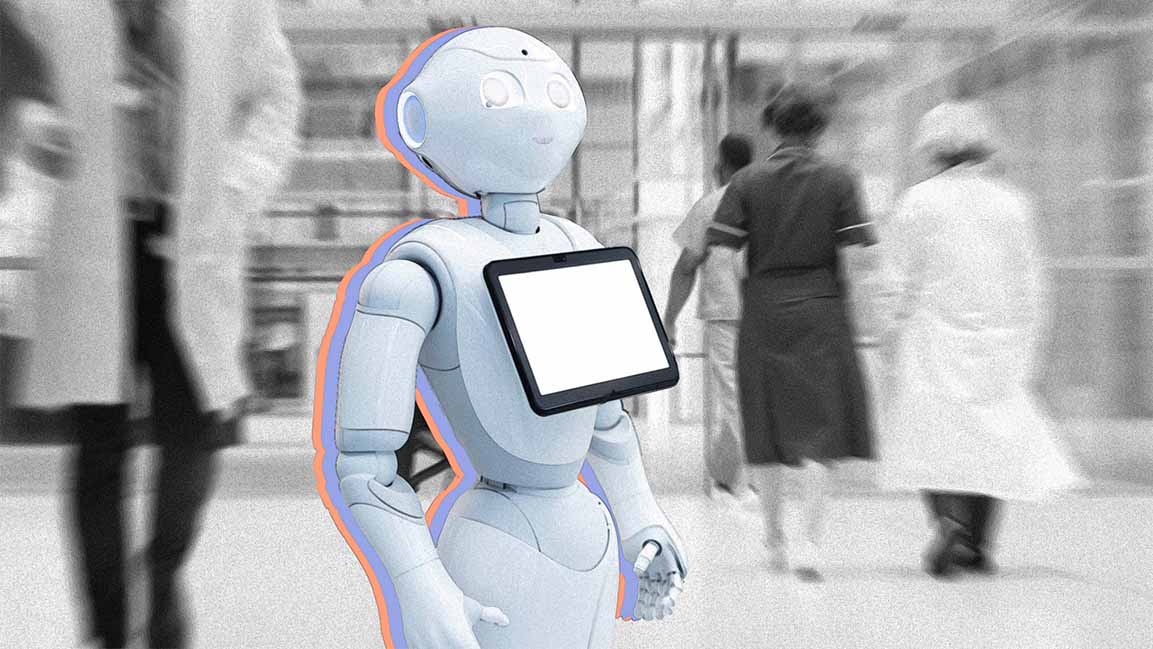- | 11:00 am
How service robots are transforming healthcare
The central theme of this year’s Arab Health, "Connecting Minds, Transforming Healthcare," will highlight various new innovations.

Hospitals increasingly adopt automation and service robots, allowing human workers to redirect their skills elsewhere. While robots may never fully replace human caregivers, their increasing presence promises to revolutionize how we deliver and experience healthcare.
This year’s Arab Health in Dubai showcased a fascinating glimpse into this evolving world, where robots are stepping in to handle routine tasks, freeing up human staff to focus on what they do best – providing compassionate, personalized care.
Singapore’s OTSAW reveals Camello+, a multipurpose hospital service robot. Packing the power of three full-time employees, Camello+ tackles everything from delivering medications and supplies to disinfecting rooms and even transporting patients.
With an eight-hour battery life and a learning system that constantly improves efficiency, Camello+ is poised to become a familiar face in hospitals worldwide. OTSAW founder Ling Ting Ming has ambitious plans to sell 1,000 labor-saving robots in 2024 alone.
Emirates Health Services (EHS) is also making waves with its innovative blood-drawing robot, a regional first. This technological marvel can slash blood-drawing times by 80% and reduce patient wait times by 50%.
Dr. Azad Moopen, Chairman and Managing Director of Aster DM Healthcare, highlighted robots’ increasingly significant role in the healthcare sector.
“Automation is something which is happening everywhere, but it has a huge role in health care,” he said. “From the very basics, such as the barcoding of medicines given to the patients or the barcoding of blood samples and all other materials that need to be precisely managed – automation is crucial to avoid a patient getting a wrong treatment or medicine.
“We are helping augment these operations, so the hospital can reassign the human to do something more on the patient care, the touch point.”
Technological advancements are taking center stage at this year’s Arab Health, with over 3,450 exhibitors and 110,000 healthcare professionals from 180 countries showcasing the burgeoning healthcare sector in the GCC region. Investments are expected to soar to $135.5 billion by 2027, driven by a 5.4% annual growth rate.
The event’s central theme, Connecting Minds, Transforming Healthcare, highlights various new innovations at this year’s Arab Health. These include a Smart Hospital and Interoperability Zone in collaboration with Cleveland Clinic Abu Dhabi and a UAE student-focused competition called Cre8.
AI is also prominently featured, with GE Healthcare introducing 19 AI-powered innovations at the event.
“Leveraging deep learning solutions will be critical as more countries shift to a future-ready healthcare ecosystem to promote precise, connected, and compassionate care,” said Hady El Khoury, Regional General Manager MENEAT for GE HealthCare.
Now accepting applications for Fast Company Middle East’s Best Workplaces For Women 2023. Click here to register.































